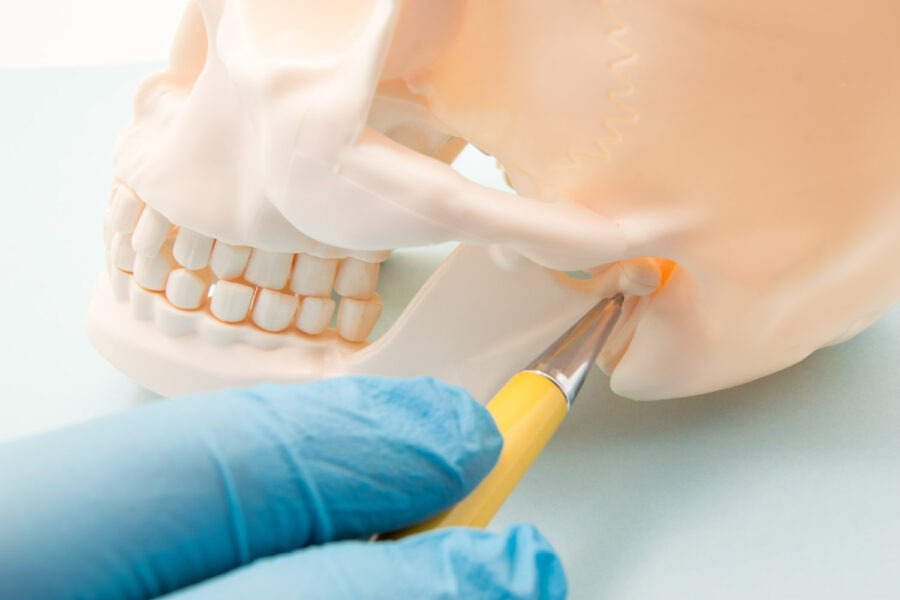
If you deal with persistent jaw pain, popping, or clicking, you might have temporomandibular joint dysfunction, or TMD. You may benefit from TMJ therapy at the dentist to ease your pain and discomfort.
What Causes TMJ Dysfunction?
Determining the exact cause of TMJ disorder can be difficult. The pain can result from an injury to your jaw or neck, like whiplash. Grinding or clenching your teeth at night could be the culprit. Arthritis, stress, a misaligned bite, or excessive gum chewing can also contribute to TMJ disorder.
What Are the Symptoms of TMJ Disorder?
TMJ disorder can cause pain and discomfort ranging from mild to severe in your face or jaw area when you eat, speak, or open your mouth wide. Some patients experience pain that comes and goes, while others have chronic pain. Other symptoms include your jaw locking or getting stuck, clicking, popping, and swelling.
How Do We Diagnose TMD?
To diagnose TMJ issues, our team will first ask about your oral health history and conduct an exam. We’ll examine your bite; check your jaw joints for pain and tenderness; listen for any pops, clicks, or other unnatural sounds when you move your jaw; and check for any issues with your facial muscles. We may also take X-rays or other scans for a full more comprehensive look at your anatomy.
What Is TMJ Therapy?
At Riverstone Dental Center, we help treat TMJ issues by designing individualized oral appliances. These are custom-fitted so they are comfortable to wear. To schedule a consultation or to ask our team any questions about TMJ therapy, contact our office today!
Contact Us
